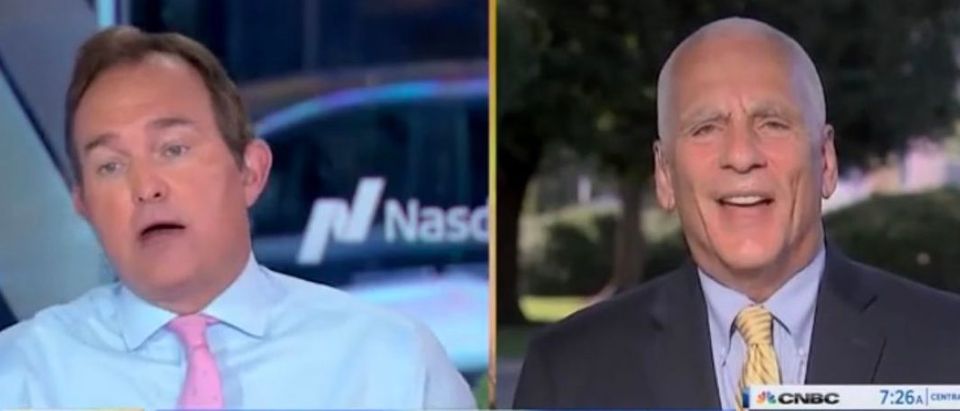White House economic adviser Jared Bernstein sparred with a CNBC host Monday over the tax increases included in the Inflation Reduction Act.
Bernstein pushed back against CNBC host Brian Sullivan’s suggestion that the Inflation Reduction Act, a $740 billion reconciliation spending package that passed the Senate on Sunday, will raise taxes on the middle class. Bernstein and other prominent Democrats have denied an estimate by the Joint Committee on Taxation (JCT) finding the bill will raise taxes on individuals making less than $400,000 per year.
“President Biden has always maintained that no one under $400,000 will pay one penny more in taxes, so, line in the sand there,” he said.
Bernstein said the legislation’s proposal to fund an additional $80 billion to the Internal Revenue Service (IRS) will close tax loopholes and avert tax evasion. Sullivan said small businesses will be spending more in taxes due to the bill, to which the economic adviser repeated that taxes will not raise on anyone making less than $400,000 a year.
“So I want to be clear, is the president guaranteeing nobody making under $400,000 will be audited?” Sullivan asked.
“No, no, no, no, that’s not what I said. Nobody under $400,000 will pay higher taxes under the Inflation Reduction Act,” Bernstein said. “Let’s be very clear about that. And look, you talk about small businesses, the minimum corporate tax kicks in at over $1 billion in profits…averaging over the past three years.” (RELATED: ‘Pure, Outright Lie’: Manchin, Harris Faulkner Spar Over Inflation Bill)
“You’re conflating two issues, Jared,” Sullivan interjected. “I’m talking about small businesses that are S corps or family, you know not hedge fund managers. I’m talking about, if you’re doubling the size of the IRS, then who are they going to go after?”
Bernstein argued that businesses and individuals are being taxed by their profitability, which is imposing a 15% minimum corporate tax on businesses making at least $1 billion per year.
He then said the bill will help reduce the federal deficit by rapidly building on the economy. He touted the deficit decreasing by $1.7 trillion due to fiscal policy and a stronger economy and argued the bill’s clean energy provisions will “generate more economic growth.”
“You get an electric car, and you get an electric car,” Sullivan said sarcastically. “We can finally get that Hyundai Ioniq that I’ve been looking at.”
A handful of studies, including one by the University of Pennsylvania’s Penn Wharton Budget Model, have shown the bill will likely raise taxes on Americans of all income brackets and may have little to no impact on inflation. The Committee for a Responsible Federal Budget found the bill will reduce the deficit by more than $300 billion through 2031.


